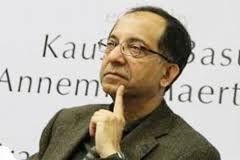
Washington, April 20: Major economic reforms in India would hit a roadblock and are unlikely to happen before the next parliamentary elections slated for 2014, chief economic adviser Kaushik Basu has said.
Addressing a meeting at the Carnegie Endowment for International Peace on Wednesday, an eminent Washington-based thinktank, Basu said that relatively less important bills might go through Parliament.
After 2014, he said, "you would see a rush of important reforms" and after 2015 India would be one of the "fastest growing" economies of the world. The new government, if in a majority, would start with the reforms in a big way because there is a sense that it needs to pick up, Basu added.
At the same time, he said, there were some reforms that needed to go into fast gear and identified opening up of the retail sector as one key reform in waiting. India, he said, also needed to address the issue of massive subsidy leakage and that of poor infrastructure.
After the elections, the government of the day would take reforms on fast track and there would be a flurry of reforms, Basu said in his address.
Kaushik Basu said there is a slowdown in decision making. The unearthing of a series of corruption and scams, he argued, is having its own impact on the psyche of the bureaucracy, that is not willing to take risks.
Basu is in Washington to attend the Annual Spring meeting of the International Monetary Fund(IMF) and the World Bank. He was addressing concerns expressed by US corporates on some recent decisions of the Indian government and its reluctance to initiate the series of next phase of reforms.
Reforms, he said, have also slowed down because of the coalition government.
Another reason for the slowdown is the battle against inflation and drop in agricultural production.
India, Basu said, acted on both the fiscal and monetary policy. Finally, India too is impacted by the global economic slowdown.
"We are going through a difficult year," Basu, who is accompanying finance minister Pranab Mukherjee to the IMF-World Bank meet, said, adding that India is trying to go back to fiscal consolidation






Comments
Add new comment